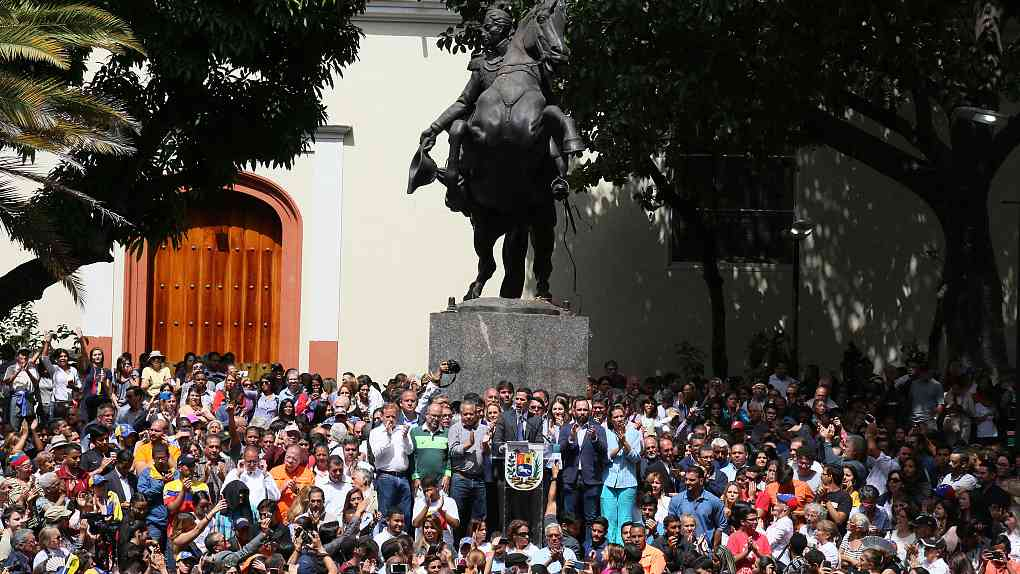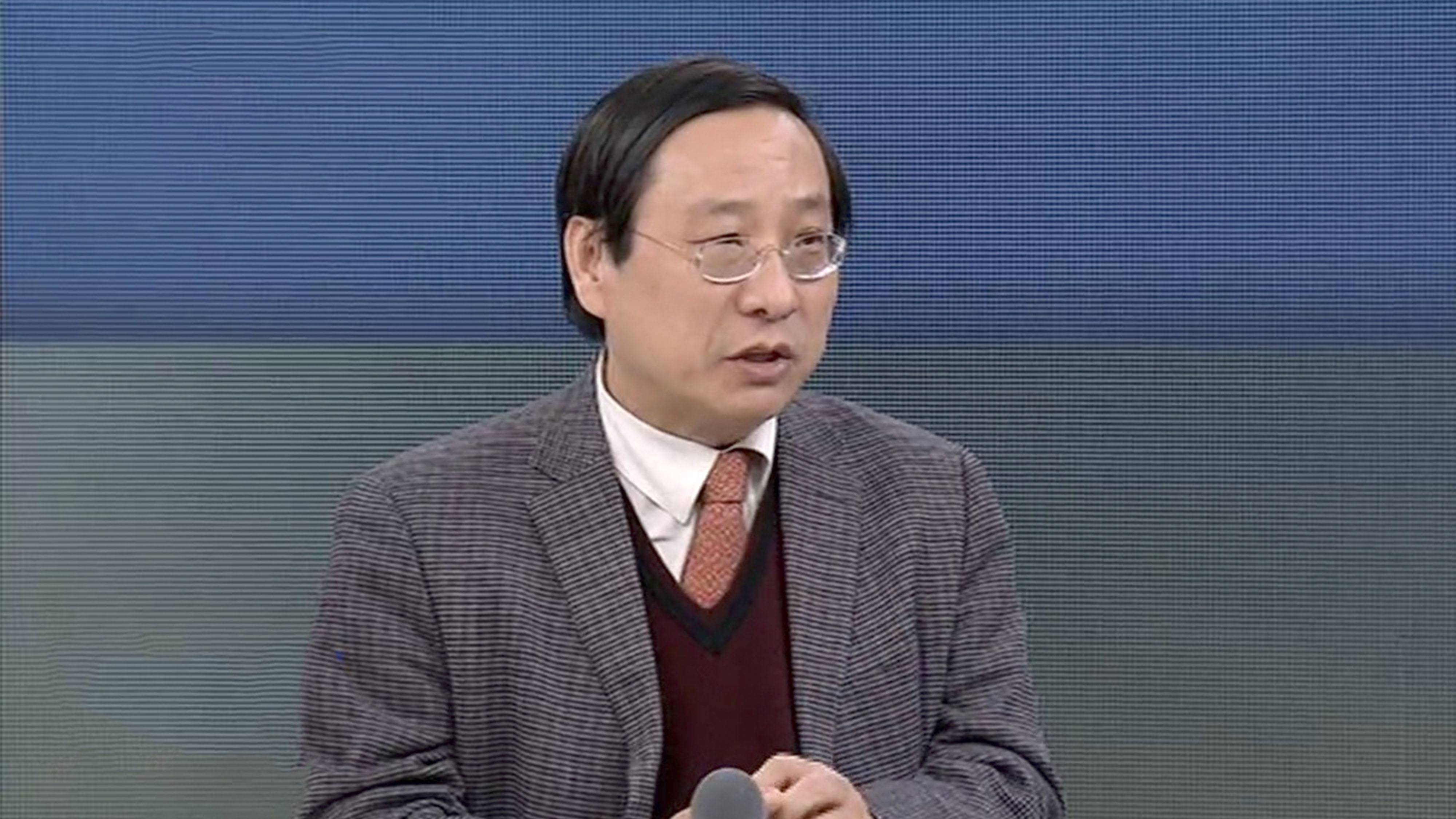
TV Show
17:15, 26-Jan-2019
Does Venezuela crisis indicate a comeback of Monroe Doctrine?
Updated
19:00, 26-Jan-2019
Dialogue with Yang Rui
00:50

Nicolás Maduro was sworn in for a second term as Venezuela's president on January 10. However, this Wednesday, U.S. President Donald Trump recognized the country's opposition leader, Juan Guaidó, as Venezuela's interim president.
Following the announcement, president Maduro severed the country's diplomatic ties with the U.S.and demanded its diplomats to leave the country, which was ignored by the White House.
Victor Gao Zhikai, the vice-president of the Center for China and Globalization, stated that all other countries should avoid interfering in the domestic affairs of Venezuela and avoid putting pressure on one party versus the other in the ongoing saga.
Einar Tangen, a current affairs commentator, drew attention toward the timing of the crisis.
"The timing is curious. It's a very good move for the U.S. at this point, be able to satisfy domestically," said Tangen, adding that "It takes a lot of attention away from other things in Washington."
With U.S.military intervention looming large and Latin America divided into pro-America and pro-Venezuela, will we see a continuation of the Monroe Doctrine?
Dr. Jiang Wenran, an adjunct professor at the University of British Columbia, pointed out that even before president Obama declared that the Monroe Doctrine was over, there had clearly been strong resistance from many Latin American governments against America's interference.
He said that besides foreign forces, how the situation will develop largely depends on which side the domestic military is on.
01:55

Gao believes that the U.S. may still want to impose its will on Latin American countries, but the resistance against the U.S. dominance is deeply rooted. He thinks that many Latin American countries will try to achieve peace and security without complete reliance on the United States.
The view was echoed by Tangen: "This is really not a U.S. issue, it is really not a Russian or a Chinese issue. This is a regional issue involving a failed state."
Tangen continued by explaining that the crisis is having repercussions on states in the region, which will see a huge flow of refugees, in desperate need of food, and medicines in order to sustain themselves.
"At this point of the time, with Brexit looming, in the streets of Paris, you have riots, there're so many things going on, the last thing the world needs is another flashpoint," concluded Tangen.
(If you want to contribute and have specific expertise, please contact us at opinions@cgtn.com)

SITEMAP
Copyright © 2018 CGTN. Beijing ICP prepared NO.16065310-3
Copyright © 2018 CGTN. Beijing ICP prepared NO.16065310-3